What’s it like to be a woman worker and walk right onto a big construction site to work? I’ve just finished up six months of working slab on an institutional construction site, and I’ll try to convey a bit of what that’s like to be a an electrical apprentice just starting to work construction and to be the only woman on the jobsite.
What is a slab? Slab is the phase of new construction that involves pouring the concrete for each floor and wall – like a slab cake but with concrete. The carpenters build the form out of plywood to hold the concrete (like a pan for a cake). The steelmen build a metal frame to re-enforce the concrete, so everyone else working has to walk over and balance on the re-enforcing steel called rebar. The electricians install little empty tubes called conduit that we will later run wires through, so that the wires are concealed inside the building, and we hammer little plastic things into the plywood where later we will pull the wires. Then the concrete is poured onto the slab. After it dries the plywood forms are scraped off the concrete, then pushed off the building and “flown” by the crane to the next part of the building. The concrete slab is left behind with everything peeled off. Like the cake, it’s the finished product. It will be one floor of the building.

I’d been working with the same crew a couple months at a cathedral renovation job, and previously did a few months of residential underpinning, so I at least felt comfortable with my electrician co-workers and foreman. My first day on the slab I showed up and immediately began helping with layout and hammering things in, feeling a lot of anxiety about my crappy hammering skills. The thing with hammering is that anyone who does it every day can easily distinguish the sound of skilled vs. unskilled hammering. You can even detect personality or if someone is feeling angry that day.
It had been about ten years since I’d seriously used a hammer and my hammering sounded super unskilled to everyone within earshot, and I felt uncomfortable. I felt the same about tying electrical conduit onto the rebar – I thought I knew how to use pliers well but the longer I work as an electrician the more I realize I have so much to learn. But the other workers were pretty welcoming. One guy told me how he was encouraging his daughter to get into trades. One day I was under pressure, we were already pouring the cement and I had to hammer in some things at the last minute under some rebar in an awkward position, but I got it together and did it. Then I started to relax a bit.
It was the middle of a hard winter. I was dressed properly because I’d worked outside in the winter before. You obviously have to wear gloves or your hands will freeze, especially because you often end up handling metal. But gloves also lessen your dexterity for splicing wires or holding nails or using power tools, so your gloves can’t be too thick. Your hands start to tingle and go numb, and you can barely work. You wrap a giant scarf around your face but then the vapour from your breath makes it damp. Your helmet has trouble staying on your head with your touque on, and you can’t seem to buy boots or socks that are good enough. Snow covers the frozen mud, but if the temperature temporarily creeps above freezing then everything melts and all your stuff gets wet and that’s when things get really difficult. In the afternoon the sun comes out and shines on the deck and things get a bit more bearable, workers start singing and joking a bit and work gets bearable. But some days the frozen wind whips across the construction site, and on a couple days the workers just go home because we simply cannot get any work done. But if we don’t work, we don’t get paid.
Heavy lifting
I end up lifting and carrying a lot of heavy stuff, like bundles of conduit and rolls of wire, often up narrow stairwells. My foreman was worried for a while that I couldn’t carry heavy things, so I started this thing where whenever he was around I would pick up something really heavy and carry it by him. Eventually he realized I could do it and wasn’t straining myself, and would start having me do jobs like using the chipping gun (like a small jackhammer) to chip out pieces of conduit that had got trapped in the concrete.
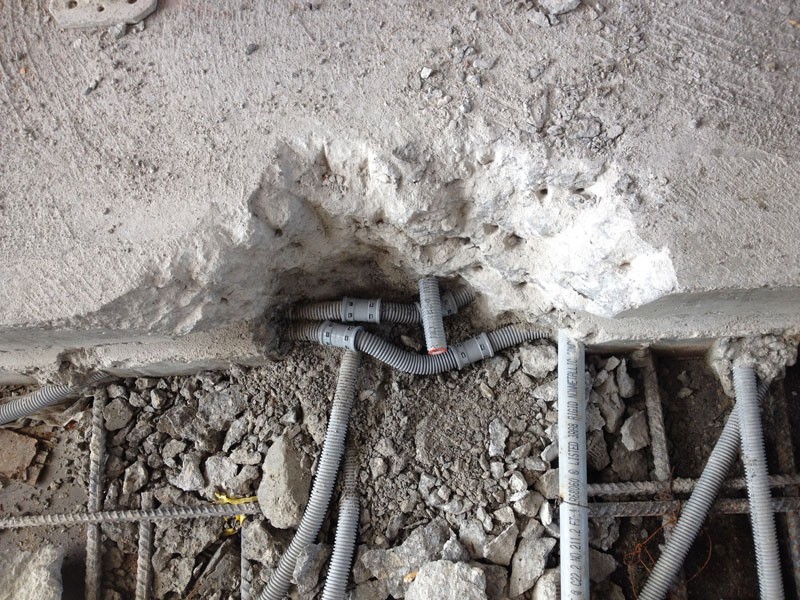
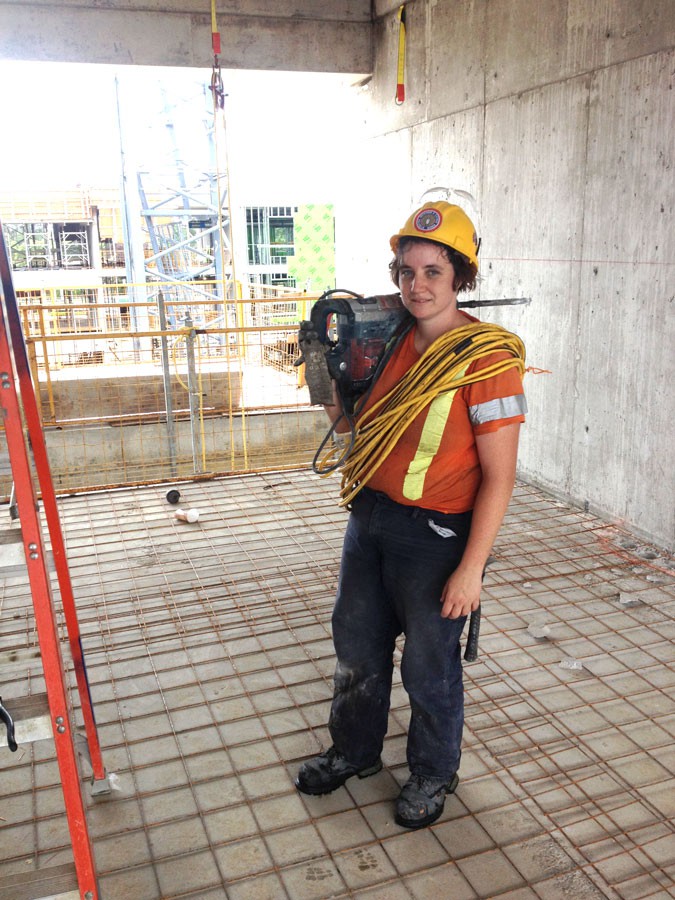
My journeyman made a joke that the my new boyfriend was a dude called “Chip Gunn”, who worked as a male stripper: “Ladies and Gentleman, put your hands together for… Chip… Gunn!” One of the workers on the site was actually a former male stripper and he occasionally does some kind of ridiculous routine involving taking off his safety harness, or singing 80s ballads in an operatic voice that carries over the whole site. In the spring, I end up having a huge crush on one of the carpenters, watching him as he lifts heavy things and hammers them, flirting as we pass on the stairs. One day he steals my ladder as a joke. The whole thing is very Grade 5 but it makes the days pass faster.
Of all the men at the site – like typical Toronto workplace it is partially structured by ethnicity, mostly Portuguese and Italians, some Blacks and Latinos, more white suburban-dudes or Newfoundlanders in the trades, and a crew of Afghani drywallers – I only have a problem with one guy. He’s a young white kid, apprentice labourer, who is slow and bad at working and disrespectful of everyone, but especially me. We have words, and he tells me that women don’t belong on the worksite. I am livid.
I can’t allow him to disrespect me like that. I think about getting in a fight, and I know I can take him, but I also know my site has a zero tolerance policy for fighting and I will get turfed off the site and possibly lose my job. I realize he wants me to hit him so I will get fired and then he’ll win. So instead I yell at him and tell him he’s a piece of shit and that he’s not worth fighting. I am encouraged to file a formal complaint on him, but I don’t think I will. I feel pretty good about the support I get from all the other workers and from management, but it’s still difficult to deal with.
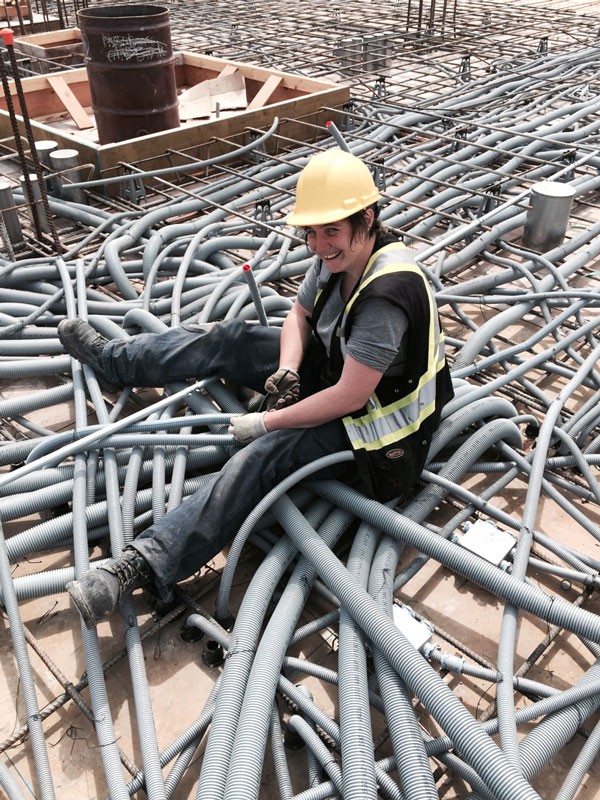
Some of the carpenters commented that I now hammered “like a professional,” which is a high compliment from people who hammer things for a living. One day I used a long piece of metal as a lever so I could lift a heavy roll of two-inch conduit over a short wall, and the general foreman was so impressed he actually tried to poach me by offering me a job as a construction labourer, which would pay way more than an electrician apprentice. In the long-term I think I’m better off as an electrician and am going to stick with this apprenticeship program, and I really like my electrical crew and the company I work for. But I was really flattered that the heavy construction workers were respecting my work.
Probably no one I work with had any idea how scared I was to work on such a site. I repress such feelings and act comfortable by joking and hold myself with a lot of confidence: confidence I don’t always feel. This jobsite has been extra special though, with the different trades getting along well. There’s been a strong feeling of community and many of other workers have commented on how great this atmosphere on this site feels, even using words like “magical.” It’s a good place to start.


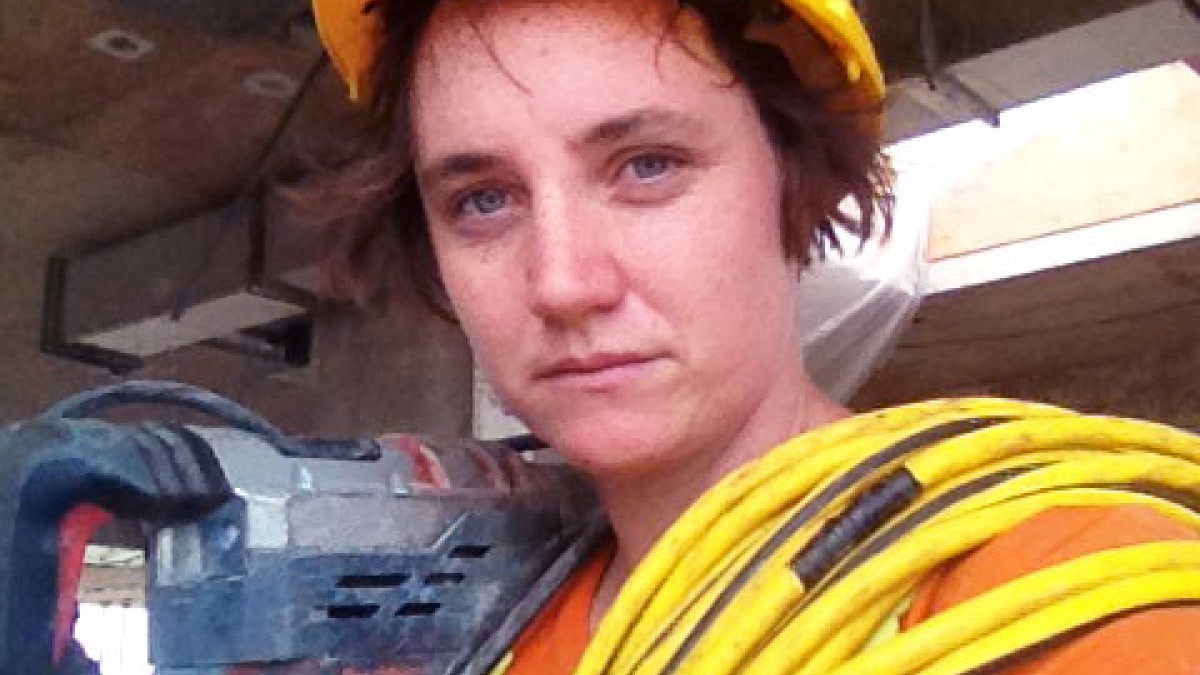

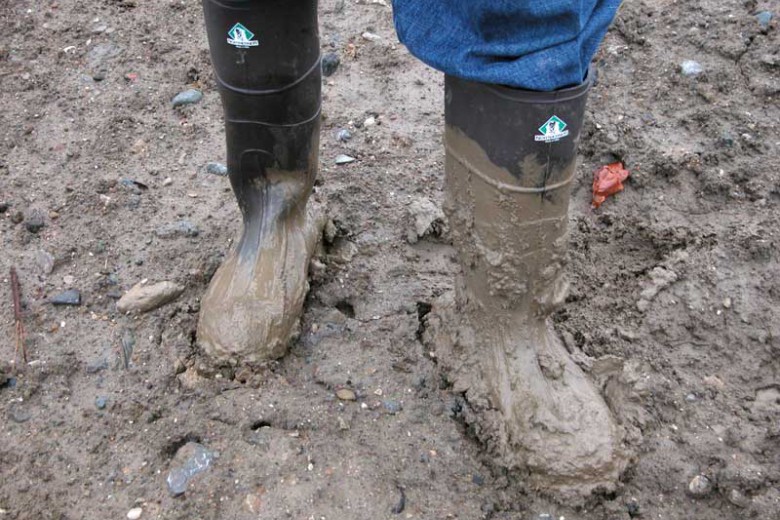
_780_520_90_s_c1.jpg)

